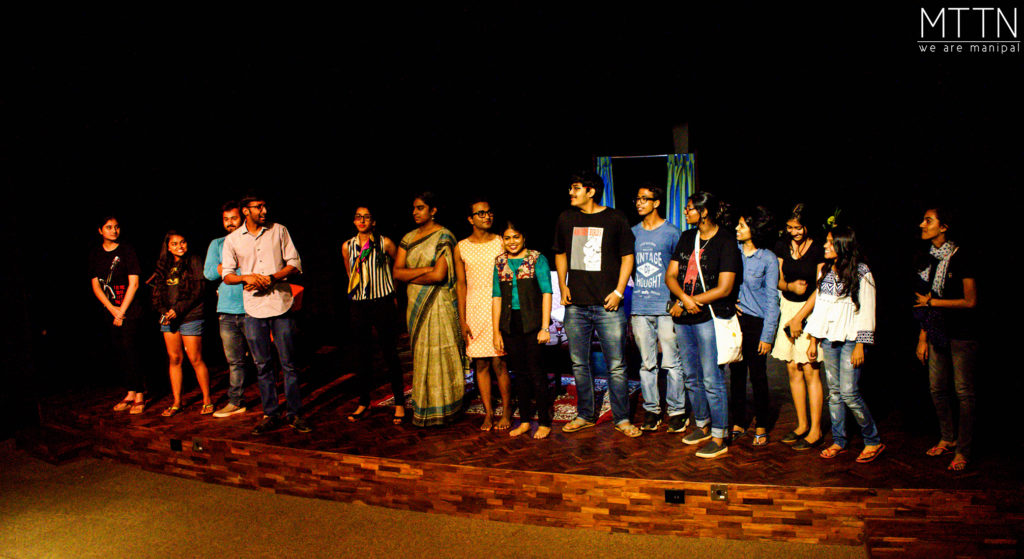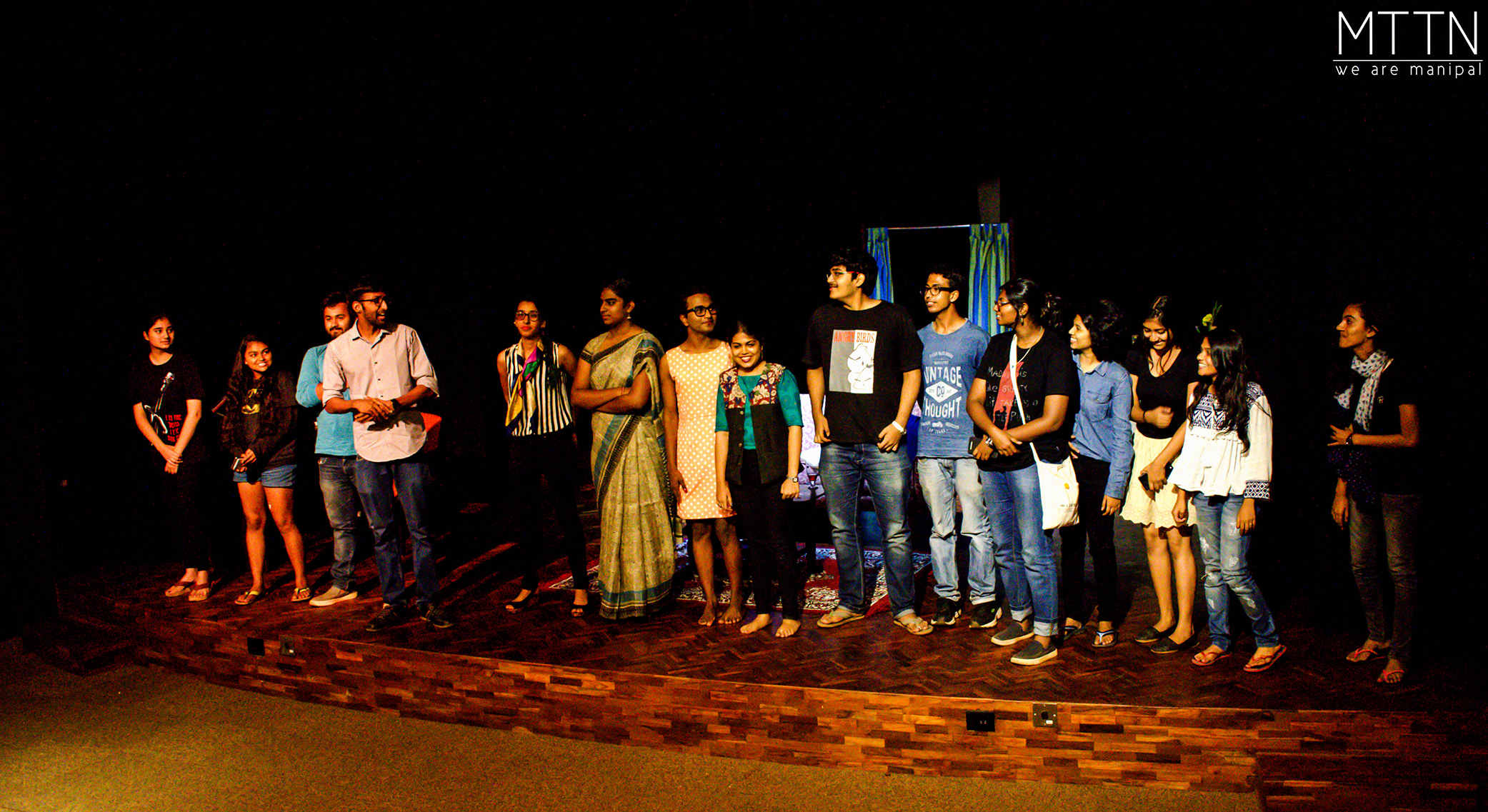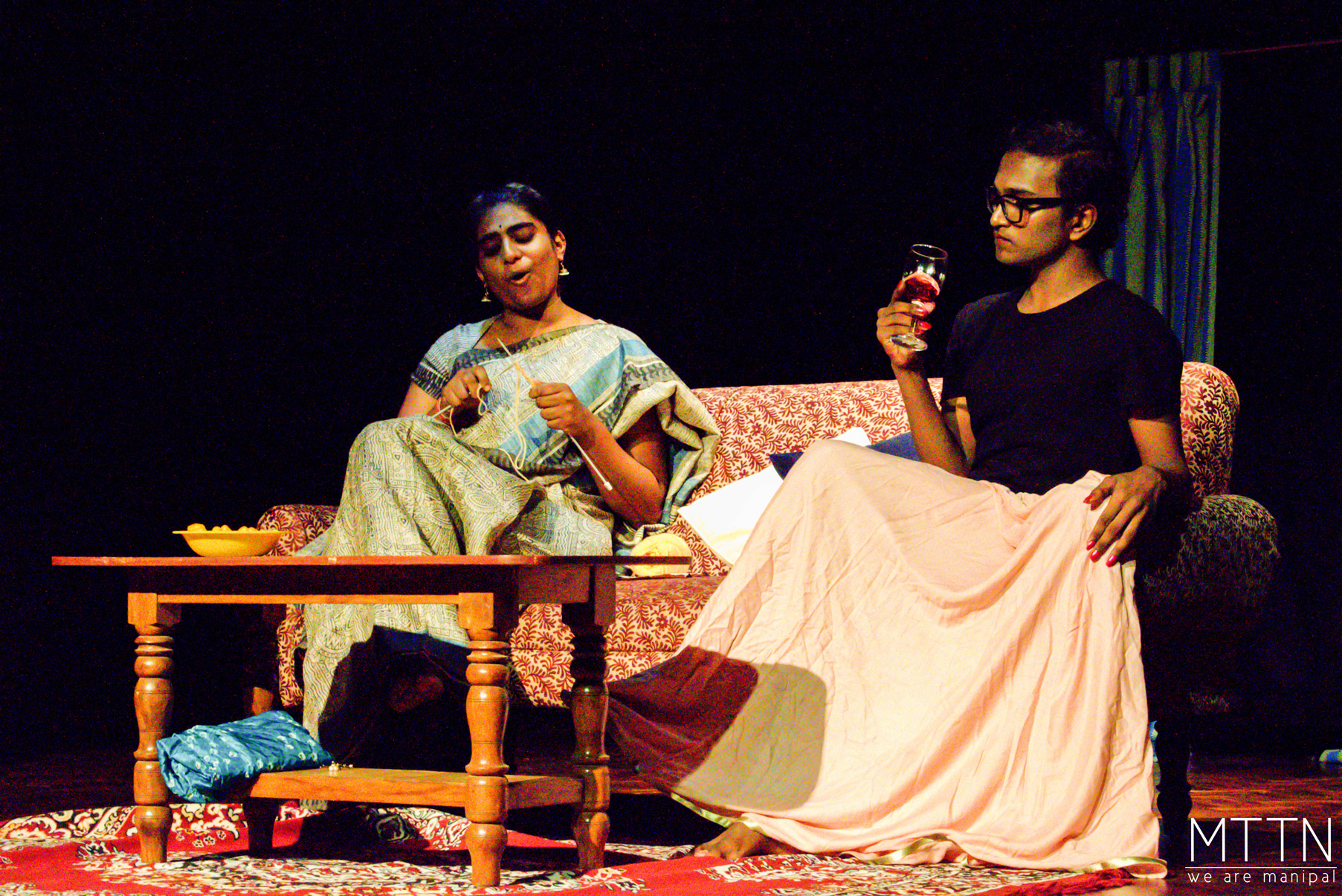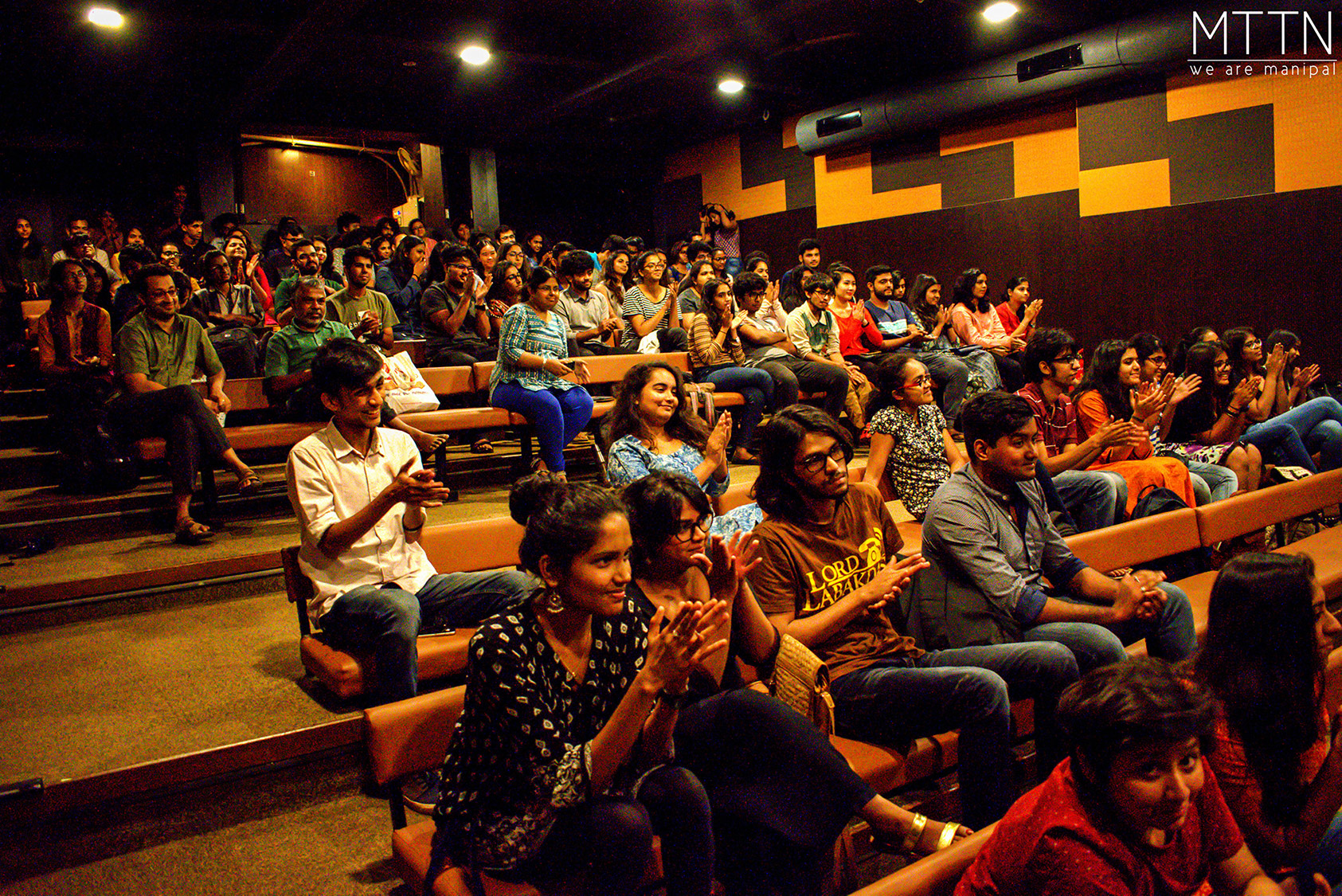
Beethoven’s Moonlight Sonata is a profound piece of music. It makes you sit back, pensive, to ponder life. It brings to the surface regrets you never knew you had, long-forgotten moments of fleeting happiness, and sadness you’ve refused to acknowledge. The music, ebbing and flowing, seems to flood over your psyche crashing into a sandcastle at the edge of the shore, receding gently to reveal softer sand to build another with.
The play – Sonata – written by Mahesh Elkunchwar, showcases the myriad emotions that Beethoven’s composition arouses. The MCPH Theatre Club put up a wonderful adaptation of this play (directed by Tom Kunnappallil) at Gangubai Hanagal Auditorium last Tuesday.
The story is set in an apartment in Mumbai, one November evening. Three middle-aged, unmarried women – old college pals, reunite. The story is spun by their conversation, filled with glowing memories of the past, bickering with banter ranging from humorous to serious, sprinkled with poignant silence.
The opening scene: a sofa, a window, a bar with a few bottles and half-filled glasses, a lady scribbling away in the far corner, face stoic with concentration. Aruna Iyer (Laya Kumar), Sanskrit scholar and award-winning story writer is immersed in her paper correction. In enters Dolan (Pavan Bentur), a successful banker who spends more than she earns on clothes, jewellery and especially, perfumes – all “frivolous” things, as Aruna often remarks. Despite their polar opposite personalities, the reserved, “straight-laced Tamilian” (as Dolan often remarks of Aruna) and the blabby Bangalorean have been roommates for the past 25 years. They know each other’s habits in and out; probably are even weary of one other.
Through the course of the night, as they wait for the arrival of Subhadra, their friend, the conversation touches various topics – Dolan’s distasteful clothing (in Aruna’s opinion), Aruna’s prudish unwillingness to taste wine (which does not sit well with Dolan, who gets increasingly inebriated as the night progresses), and ‘Ms. Typo’ who lives alone in the opposite building and whose night-time routine Dolan can chant by heart after regular observation. Their banter evokes laughs from the audience. They behave like an old couple.
Subhadra (Aarushi Bhardwaj), the third musketeer, arrives on stage bearing an expensive perfume bottle as a gift for Dolan. She is a feisty woman who loves living on the edge; perhaps that is why she chose journalism as her profession. Her breezy energy transforms the mood in the hall. Aruna and Dolan soon notice her black eye, which she simply brushes off, saying that she had a fight with her boyfriend, reassuring them that she had retaliated in equal measure. This discord had brought her to Aruna and Dolan’s apartment, her “transit launch”, her refuge until things settled down.
The three chatter on about their college days. In a memorable scene, the trio burst into uncontrollable laughter (with the audience in tow.) Surprisingly, Aruna decides to take her first sip of wine. She wonders out loud if she’s living life the right way. Or maybe her friends are? Look at them, so carefree, so gutsy, always ready to boldly speak their minds. She then asks Subhadra a very serious question, “Are you happy?”
Subhadra replies, with what must be the best dialogue in the play – “My friend, that is an existential question, and no existential question can ever be answered.”
In the rest of the play, Subhadra leaves, and Dolan and Aruna are left talking in the wee hours of the morning. Aruna then mentions her run-in with an old lover from college, an acquaintance of Dolan’s, and long repressed secrets come tumbling out. The audience was given a subtle hint of romantic feelings between the two women. The intense scene was perfectly executed.
The play raises several questions; are the characters – three independent women who have carved niches for themselves in the world, are they at peace with themselves? Why then, did Aruna decide to drink wine that night after a lifetime of restraint? Why then, does Dolan indulge in gossip and obsess about perfumes – shouldn’t experience have made her wiser than that? Why then, does Subhadra choose to stay in an abusive relationship? And the biggest question – will they ever find happiness, whatever that really means.
Laya Kumar fit into her role as Aruna beautifully, as did Aarushi Bhardwaj as Subhadra. Pavan Bentur deserves a special mention: His portrayal of Dolan was accurately feminine in every aspect, from his expressions and intonation to the subtlest of mannerisms. Kudos to his wonderful acting. Great show, MCPH Theatre Club. Expectations soar for the next performance.
– Written by Niharika Dixith




Leave a Reply
You must be logged in to post a comment.